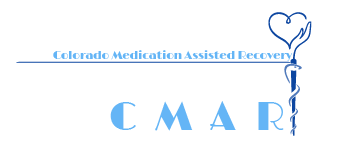 Bipolar disorder, formerly referred to as manic depression, is a condition that affects millions of people worldwide. It’s a chronic illness that is marked by extreme mood swings that vary from high-energy to low-energy states. Although this mental health disorder is incurable, it can be effectively managed with the right therapy program. Seeking professional help is the first step in getting relief for this condition. Let’s consider what bipolar disorder is and its signs, the benefits of a bipolar disorder therapy program, and how to get help from a treatment center like CMAR. For more about addiction treatment therapies, call us today at 833.448.0127.
Bipolar disorder, formerly referred to as manic depression, is a condition that affects millions of people worldwide. It’s a chronic illness that is marked by extreme mood swings that vary from high-energy to low-energy states. Although this mental health disorder is incurable, it can be effectively managed with the right therapy program. Seeking professional help is the first step in getting relief for this condition. Let’s consider what bipolar disorder is and its signs, the benefits of a bipolar disorder therapy program, and how to get help from a treatment center like CMAR. For more about addiction treatment therapies, call us today at 833.448.0127.
Signs of Bipolar Disorder
Bipolar disorder, also known as manic-depressive illness, is a mental health condition characterized by distinct periods of mania or hypomania and depression.
Manic Episodes
During manic or hypomanic episodes, individuals may experience:
- Heightened energy levels
- A sense of euphoria
- Increased talkativeness
- Racing thoughts
- A decreased need for sleep
They may also engage in impulsive behaviors, such as excessive spending or risky sexual activities, and exhibit poor judgment.
Depressive Episodes
On the other hand, during depressive episodes, people with bipolar disorder may feel:
- Overwhelming sadness
- Loss of interest or pleasure in activities
- A general lack of energy
They may have difficulty concentrating, experience changes in appetite and sleep patterns, and even contemplate or attempt suicide.
It’s important to note that bipolar disorder affects each individual differently, and the severity and duration of these mood swings can vary. Proper diagnosis and treatment, such as medication and therapy, are crucial in managing symptoms and improving quality of life for those living with this condition.
What Is a Bipolar Disorder Therapy Program?
Bipolar disorder therapy programs are meticulously designed to effectively manage the symptoms of the condition and substantially improve the overall quality of life for patients. These comprehensive programs, expertly guided by mental health professionals, incorporate a range of therapeutic approaches tailored to meet the unique needs of each individual.
One such approach is cognitive-behavioral therapy (CBT), which equips patients with invaluable skills to identify and navigate through harmful thoughts and behaviors, enabling them to gain greater control over their mood swings. Additionally, dialectical behavior therapy (DBT) is specifically designed to enhance emotional regulation and interpersonal skills, empowering patients to forge healthier relationships and develop a stronger sense of emotional stability.
The Roles of Psychoeducation and Medication Management
Moreover, psychoeducation plays a pivotal role in these therapy programs, empowering patients with a deep understanding of their condition, its triggers, and effective strategies to successfully manage their symptoms. By equipping individuals with knowledge and insights, psychoeducation fosters a sense of empowerment and self-awareness in patients, enabling them to make informed decisions and take proactive steps towards their mental well-being.
Furthermore, medication management is often an integral component of bipolar disorder therapy programs. Under the supervision of medical professionals, the appropriate use of medications helps to stabilize mood fluctuations and manage the symptoms of the condition, promoting overall stability and improved functioning.
5 Benefits of Bipolar Disorder Therapy
1. Improved Symptom Management
With the right therapy program, people dealing with bipolar disorder can experience improved symptom control which leads to an overall better quality of life.
2. Decreased Relapse Rates
Because bipolar disorder is a chronic condition, relapse is always a concern. Effective therapy programs can help patients reduce the risk of relapse.
3. Better Relationships
Bipolar disorder can impact relationships in a negative way. Therapy can help patients improve their interpersonal skills and strengthen their relationships.
4. Enhanced Coping Skills
Patients can learn how to recognize and effectively cope with triggers that can cause a manic or depressive episode.
5. Improved Overall Functioning
Bipolar disorder can significantly impact a patient’s daily life. Effective therapy programs can help improve a patient’s daily functioning so they can maintain their independence and enjoy a better quality of life.
Get Help Today From CMAR
If you’re struggling with bipolar disorder, finding immediate treatment is essential. CMAR offers a comprehensive treatment program for people struggling with the condition.
Our team of mental health professionals will work with you to create an individualized treatment plan that meets your unique needs. Call us today at 833.448.0127 or use our online contact form to set up an appointment and take the first step toward getting the relief you deserve.













 Bipolar disorder, formerly referred to as manic depression, is a condition that affects millions of people worldwide. It’s a chronic illness that is marked by extreme mood swings that vary from high-energy to low-energy states. Although this mental health disorder is incurable, it can be effectively managed with the right therapy program. Seeking professional help is the first step in getting relief for this condition. Let’s consider what bipolar disorder is and its signs, the benefits of a bipolar disorder therapy program, and how to get help from a treatment center like CMAR. For more about
Bipolar disorder, formerly referred to as manic depression, is a condition that affects millions of people worldwide. It’s a chronic illness that is marked by extreme mood swings that vary from high-energy to low-energy states. Although this mental health disorder is incurable, it can be effectively managed with the right therapy program. Seeking professional help is the first step in getting relief for this condition. Let’s consider what bipolar disorder is and its signs, the benefits of a bipolar disorder therapy program, and how to get help from a treatment center like CMAR. For more about